Agriculture & Environment
Landscape Ecology Summer School 2022 tackles Cities & Urban Ecological Resilience
Published
3 years agoon
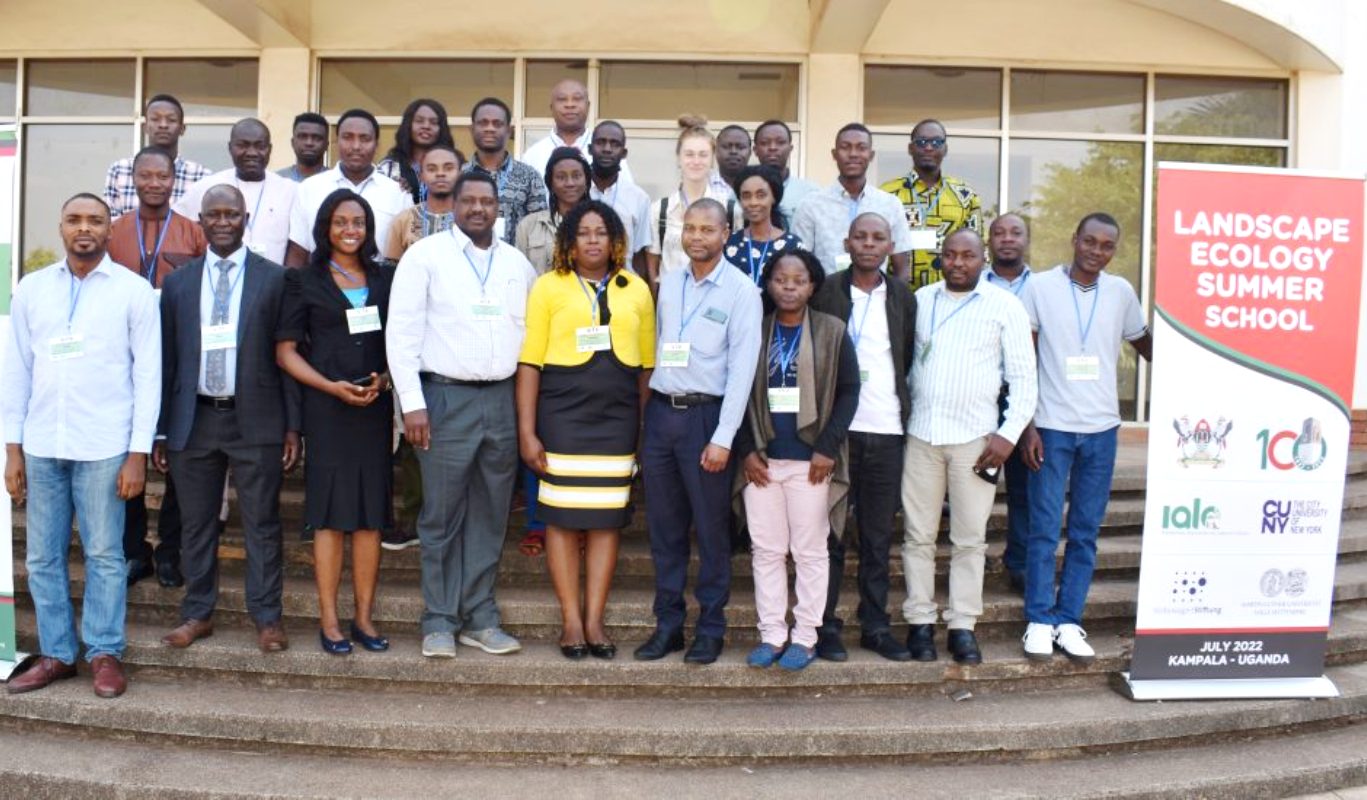
The College of Agricultural and Environmental Sciences, Makerere University led by the Deputy Principal, Prof. Yazidhi Bamutaze, organized and hosted the 2022 Landscape Ecology Summer School, held from 21st to 22nd July, 2022. The summer school was attended by participants from twenty (20) countries including: Uganda, Kenya, Congo – Kinshasa, Ghana, Nigeria, Germany, the US, Eswatini, Ethiopia, Benin, Rwanda etc. The summer school was very intensive with a series of activities including several presentations, visits to three (03) informal settlements in Kampala including Kisenyi, Bwaise and Acholi Quarters. In Jinja, participants visited two (02) informal settlements including Kibuga – Mbaata, Rippon and the source of the Nile. Participants were hosted to a dinner in Jinja and cultural night at the Ndere Cultural Centre in Kampala. The school started with a theoretical and conceptual overview of urban ecologies of Kampala and Jinja cities at Makerere University. This was followed by a tour of Kampala city and the above selected informal settlements to gain valuable insights into their complex urban ecologies. During the visits, participants had the opportunity to engage with community leaders from the informal settlements as a way of gaining a deeper understanding into the motivations and logics behind the visions of communities living in unequal and precarious environments.
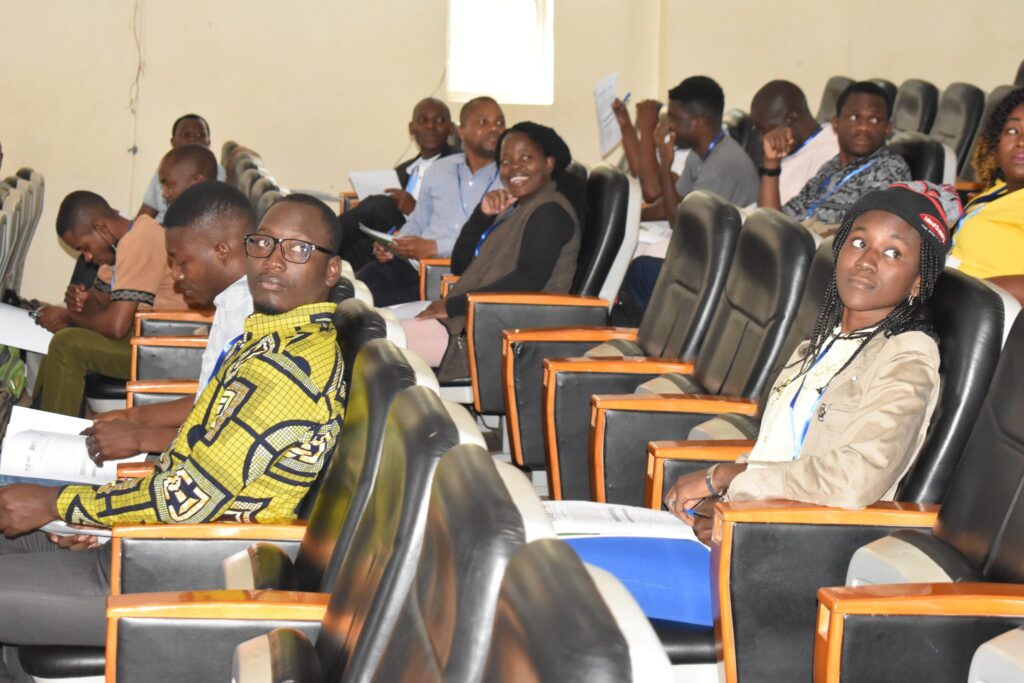
Under the theme “Cities and Urban Ecological Resilience”, the focus of the school was to “Understand Landscapes, Issues and Co-creation of Knowledge and Solutions” at relevant scales as well as addressing sustainability issues. The objectives of the summer School included:
- Provide insights in recent conceptual, theoretical and technological developments in landscape ecology that enhance the UN Global Development Agenda 2030 and the African Union Agenda 2063.
- Build a network of knowledgeable, skilled and competent multidisciplinary scientists with competencies to resolve complex issues.
- Facilitate deepening of beneficial science-practice-policy interfaces along ecological sustainability and livelihood thrivability in the midst of increasing stressor.
- Increase north-south and south-south networking, collaboration and partnership for increased knowledge creation and scholarship.
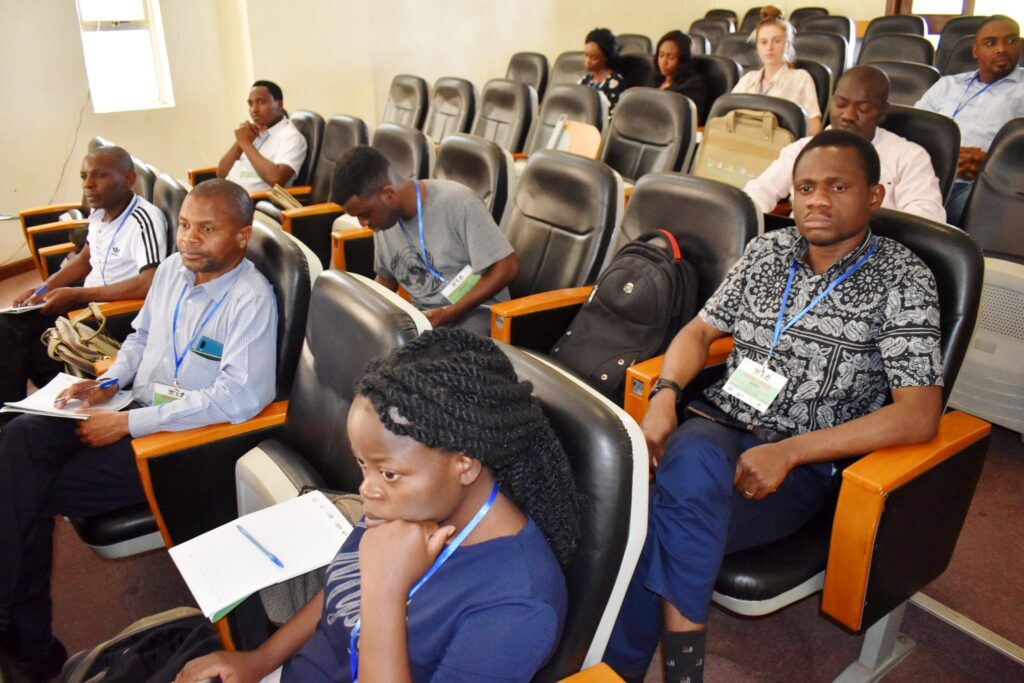
The landscape ecology network was initiated mainly to address contemporary issues that will lead to the actualization of agenda 2030 and more specifically, SDGs 1 (No poverty), 10 (Reduced inequality), 11 (Sustainable cities and communities), 13 (Climate Action) and their related targets. It is envisioned that the network will play an important role to improve public portfolios, skills and scholarships among African scholars as well as increase collaborations and networking. The network is expected to enable more contributions to publications, increased scholarship from African scholars and greater collaboration/networking. The network is headed by three principle investigators including: Prof. Yazidhi Bamutaze (Makerere University), Prof. Henry Bulley (City University of New York) and Prof. Catherine Furst (Martin-Luther-Universitat Halle-Wittenberg).
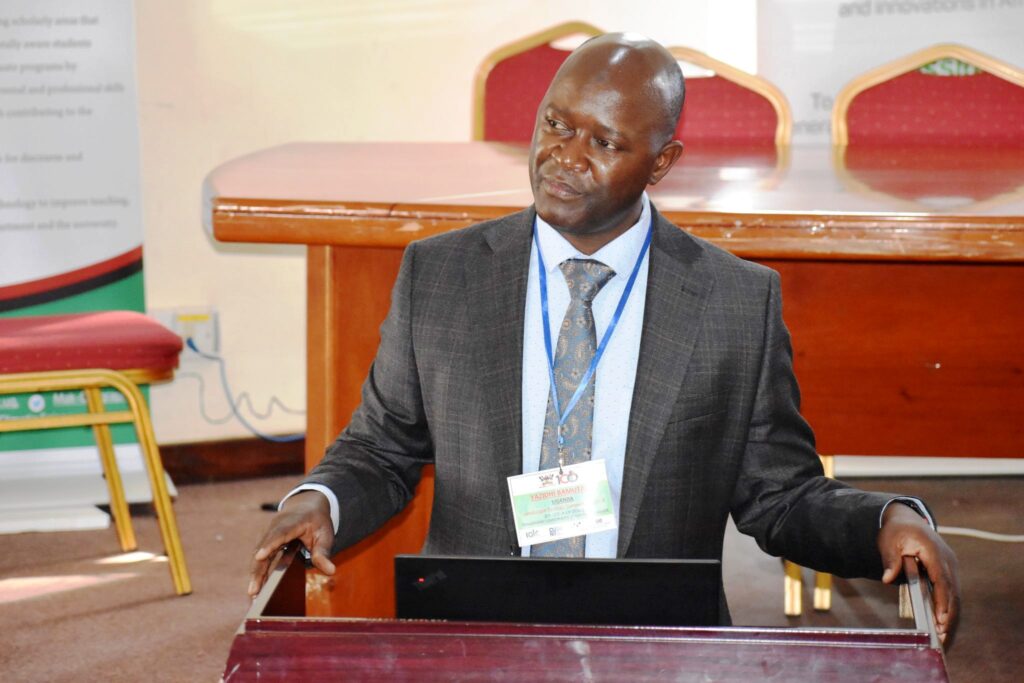
In his opening remarks, Prof. Yazidhi Bamutaze, Deputy Principal, College of Agricultural and Environmental Sciences, pointed out that Makerere University remains one of the top universities in Africa. The university was in the midst of commemorating 100 years since its inception. The summer school was therefore an important element within the broader contribution of the university as a knowledge generation and research institution not only for Uganda but Africa as a whole. According to Prof. Bamutaze, the network has already undertaken two (2) summer schools in Kampala, with the first one being held in 2021, the second one in 2022. The next summer school is scheduled to be shared between Kampala and Nairobi in 2023.
Following Prof. Bamutaze’s opening, Prof. Henry Bulley remarked that,
“If we are to go beyond resilience, we have to bring back nature. Therefore a lot has to be done collectively in order to address issues of climate change. For a city to develop we need to critique ideas, however our criticisms should be directed towards the methods or ideas not the human being…”
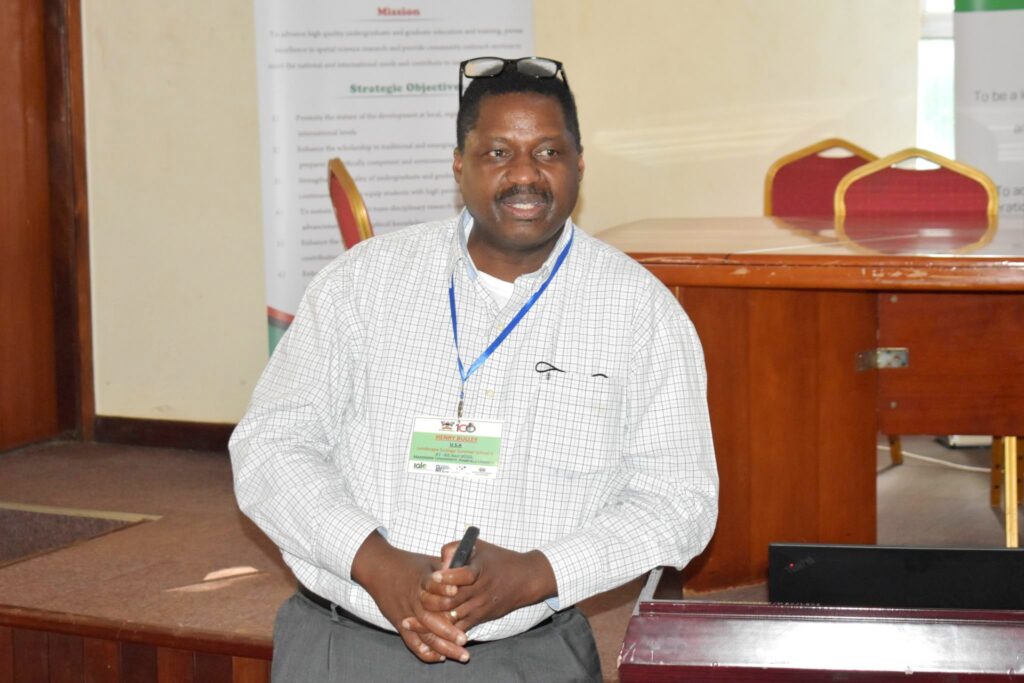
Furthermore, Prof. Bulley applauded donor support for the network activities.
“We appreciate the money coming in from both donor foundations which has enabled us have the summer school this year (2022). If this is going to translate into anything, we need collaborations because if we start and improve partnerships we can change things for our communities. Everybody is now thinking about Agenda 2063 on ‘The Africa We Want’, with the majority of Africa becoming gradually urbanized. We want an organized urban Africa though the question is: how do we work towards this? “
According to him,
“…we need to showcase how we are doing things, what is there in terms of resources to achieve the Africa we want, copying from other African countries and the drivers of change (Sustainable Development Goals) to improve resilience for sustainability…”
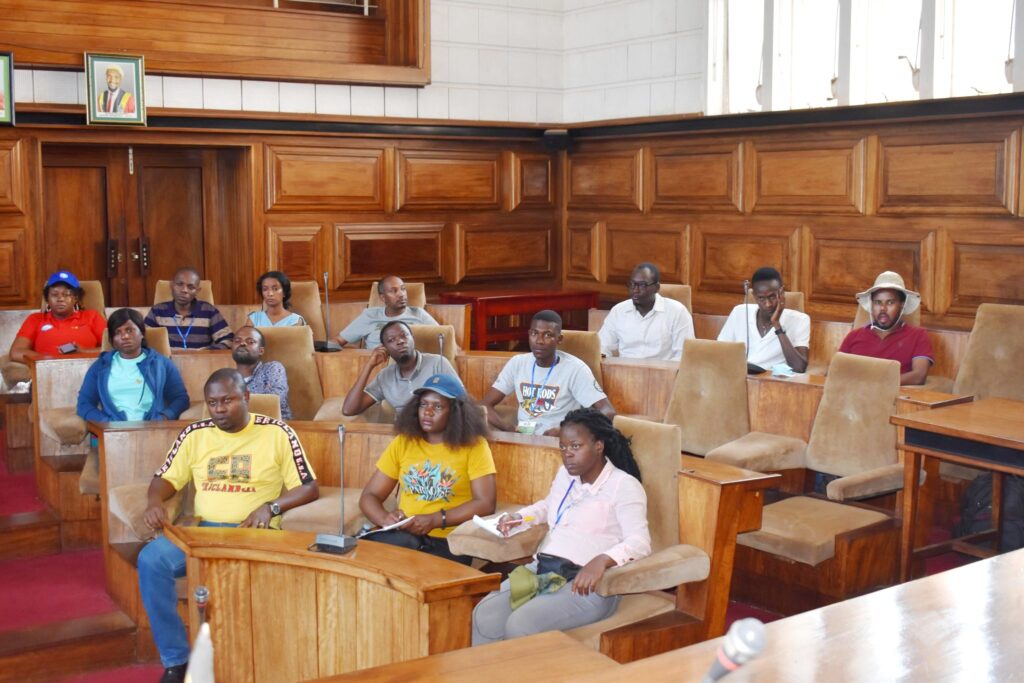
Issues arising from the summer school
- Inadequate physical planners for Africa as well as the need for mind transformation amongst the current group of planning professionals,
- Initiatives geared towards addressing slum issues are lacking in some countries such as Congo – Kinshasa where resource extraction has eclipsed issues such as urban development,
- There is need to balance diverse views and identities while generating useful knowledge within the current networks of professionals and academia across Africa,
- Local experiences need to be translated into legitimate scholarly knowledge by engaging practitioners in documenting and publishing their experiences in journals, and other academic platforms,
- Kampala informal settlements have challenges including: developments pressures, multi-land tenure system, urban sprawl,
- Ghana’s urban planning system just like Uganda has serious challenges including institutional governance and implementation.
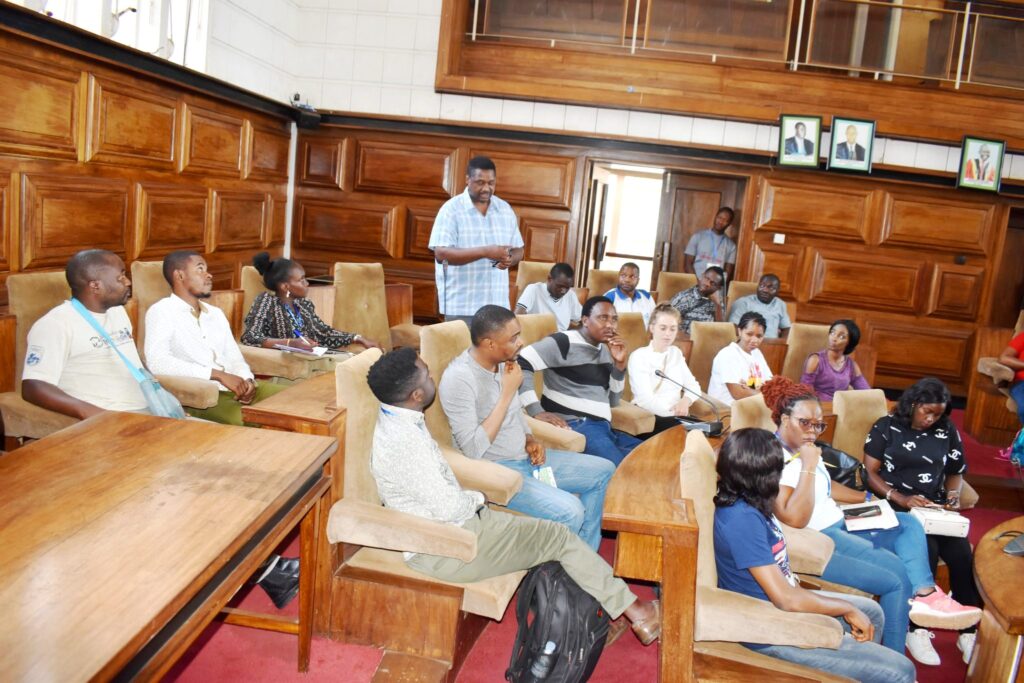
Recommendations for Improvement
- There is need to reconcile donor demands with the practicalities of the summer school e.g. sending emails to undertake accountability is inappropriate and hence needs to be resolved urgently to improve the management of the whole process,
- Networking is very key and according to Prof. Henry Bulley,
“You are not here to learn the basics of science. The key reason you are here is to network and collaborate. Social events allow us to see the humanity in ourselves, you may not know the person who will administer your grant. With all the degrees, if we don’t network we are joking”,
- There is need for Africa’s cities to build their capacities to induce economic growth and foster transformative cultural change,
- There is need to integrate environment issues e.g. urban greening and beautification, climate change in all development plans by local city governments,
- Priority should be given to ALL forms of knowledge NOT academic knowledge only,
- Complex academic concepts should be translated into relatable and practical narratives for local communities for greater impact,
- Consideration should be accorded for the development of collectively agreed protocols for knowledge exchange and use,
- There is need to increase the number of days a summer school takes per year. Although this can also be achieved through having more webinars or virtual – based activities,
- Refresher training courses for follow-up on previous summer schools for continuity are critical hence the need to be integrated in the future network plans,
- Physical planning is a critical component for addressing the challenges faced by informal settlements across urban Africa,
- Increase student involvement in knowledge creation processes as a key resource for more impactful planning policy,
- Documentation of the network activities so that future schools can build on the previous summer schools.
- Adequate policy and proper stakeholder engagement in policy-making, accessibility to funding and proper information and capacity enhancement for more resilient cities,
- The need for infrastructure that is sensitive to various kinds of people in Africa’s cities,
- Inter – disciplinarity is a core element of planning for more resilient African cities,
- There is need to alternate summer school venues across the continent for a more diverse experience for participants,
- People have to be engaged in planning since they are at the center of all the decisions being made by development professionals.
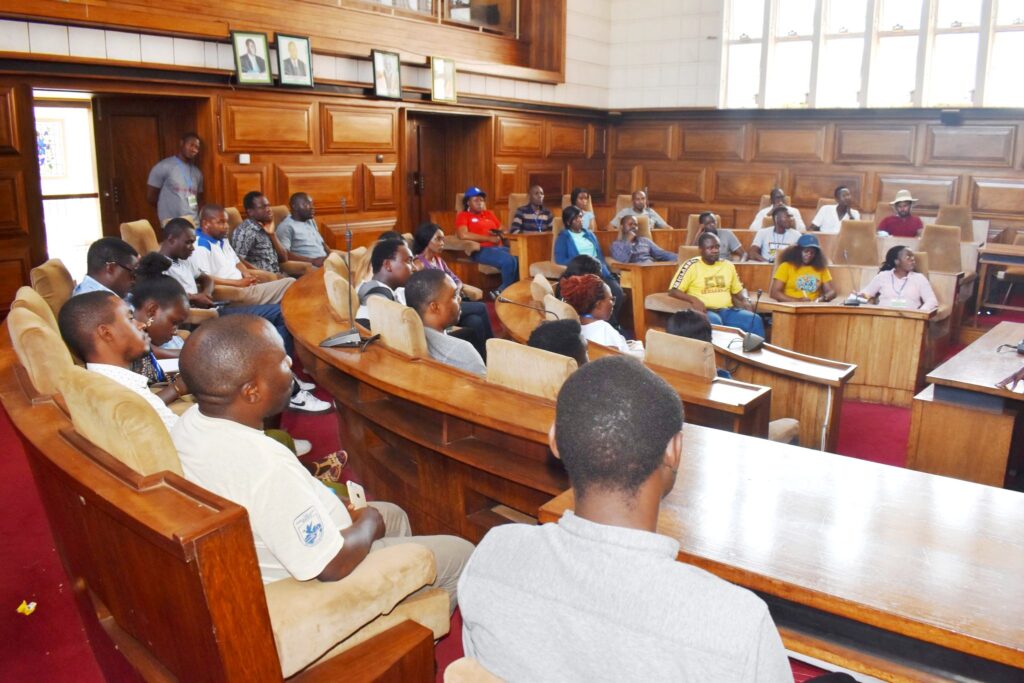
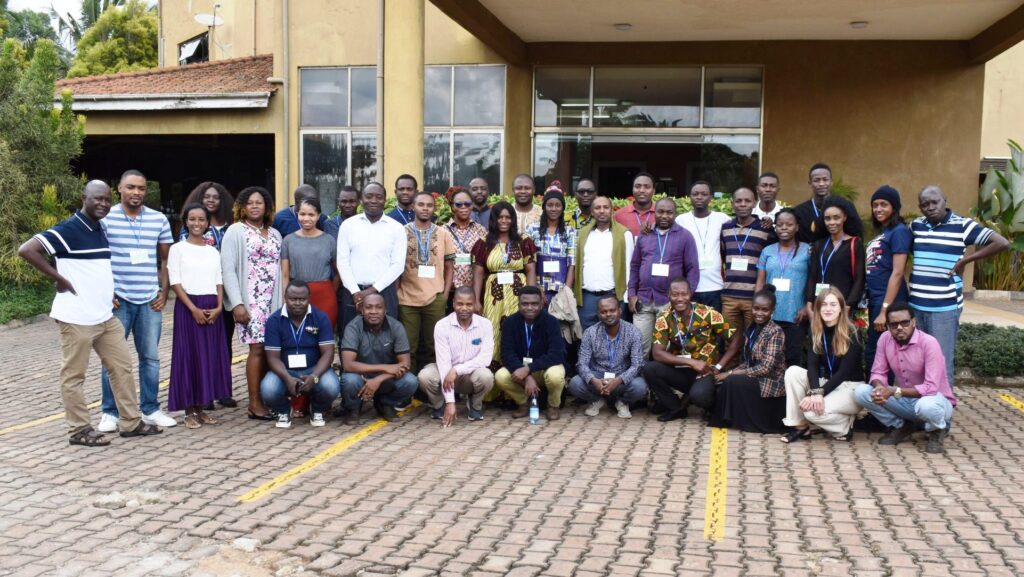
Kasemiire Mariam is the Web Administrator, CAES & School of Law
You may like
-
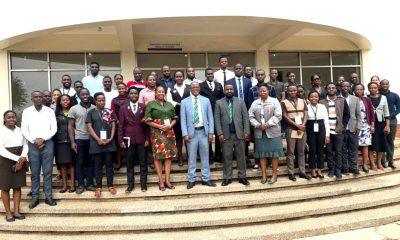

Mak Moves to Revitalize Food Technology & Business Incubation Centre to Drive Innovation & Entrepreneurship
-


Makerere University Fees Waiver for 40 First Year Female Students 2025/2026
-
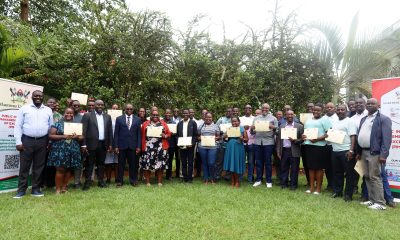

Makerere’s PIM Centre Concludes Training on Certificate of Financial Implications (CFI)
-
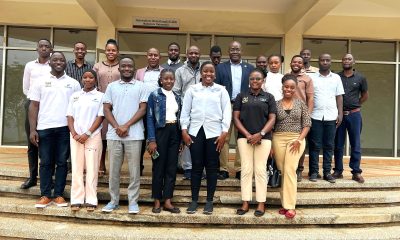

SophiA Project Upgrades Medical Infrastructure at Buvuma Health Centre IV, Trains Technicians for Maintenance Works
-


Press Statement on Ranking
-
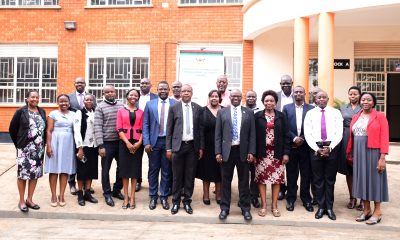

School of Business Conducts Strategic Leadership Training for Makerere University Managers
Agriculture & Environment
Mak Moves to Revitalize Food Technology & Business Incubation Centre to Drive Innovation & Entrepreneurship
Published
1 day agoon
July 14, 2025By
Mak Editor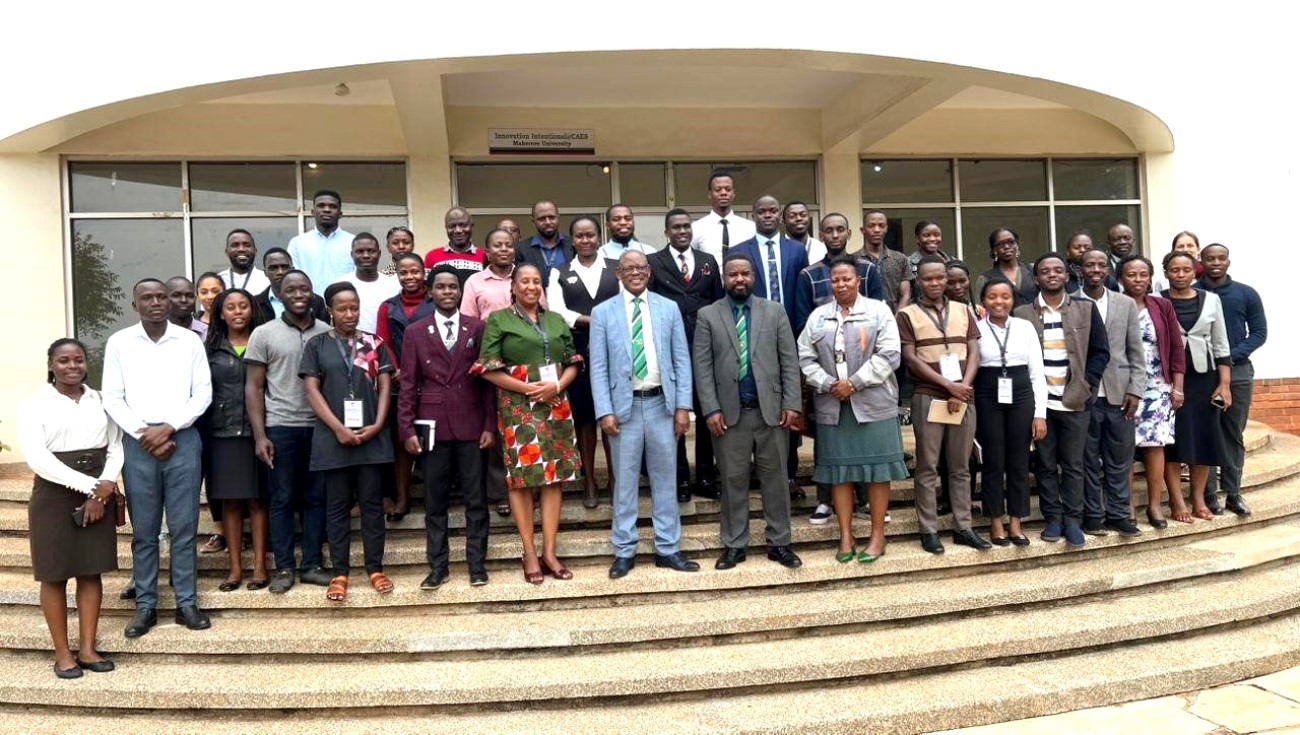
By Ssembogga Derrick
Makerere University marked a significant milestone on Thursday, 10th July 2025, with the launch of the revitalization programme for the Food Technology and Business Incubation Centre (FTBIC). This initiative is poised to position the FTBIC as a national hub for food innovation, student enterprise development, and agro-industrial transformation.
Hosted under the School of Food Technology, Nutrition and Bioengineering (SFTNB) at the College of the Agricultural and Environmental Sciences (CAES), the revitalization of the FTBIC is intended to bridge the gap between academia and industry. “We aim to achieve this by supporting food-based start-ups, enhancing graduate entrepreneurship, and promoting the commercialization of research,” Dr Julia Kigozi, Dean, SFTNB explained. The project receives critical funding from the Makerere University Research and Innovations Fund (MakRIF), which consistently supports innovation and research-based development at the university.
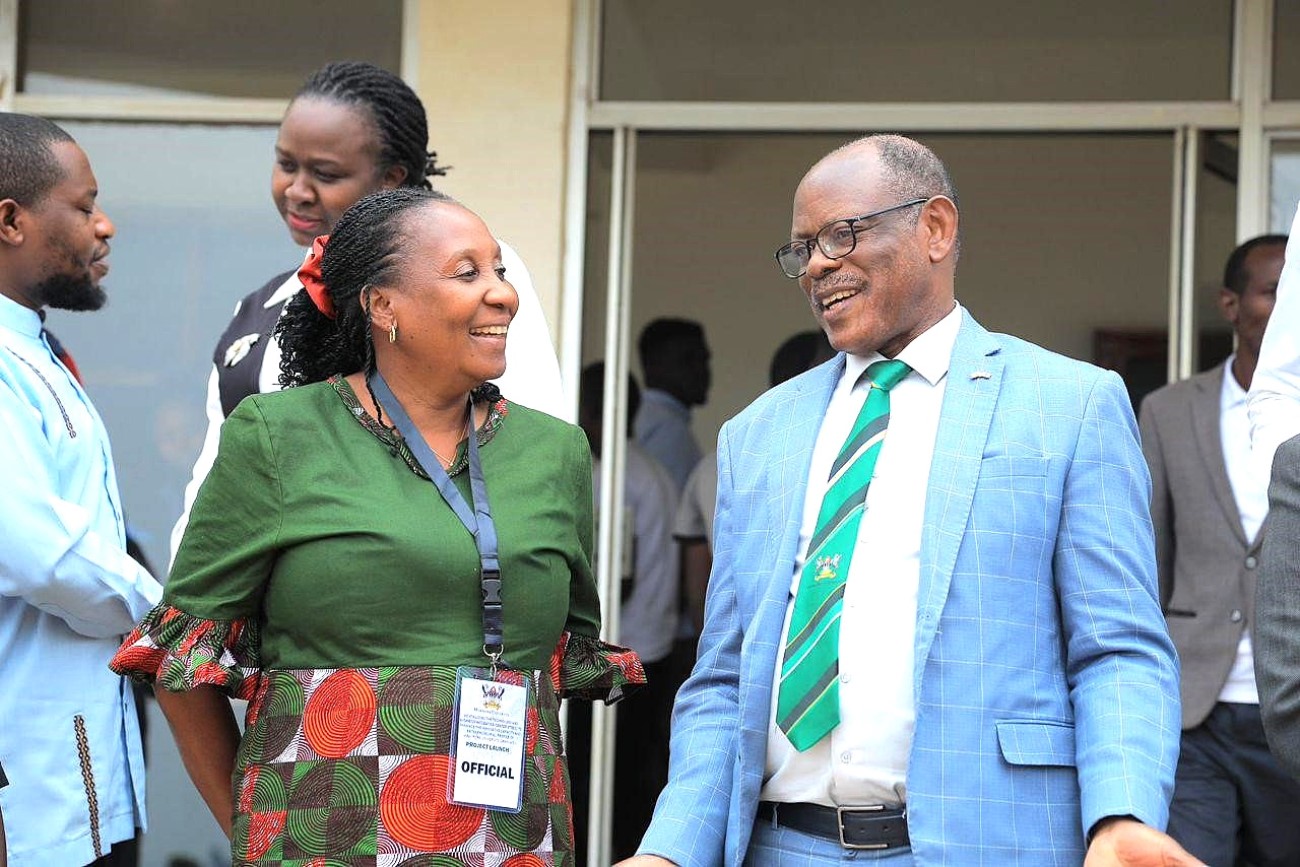
Unveiling a New Strategic Vision
The event, held under the theme “Revitalizing FTBIC to Unlock Innovation and Entrepreneurship Potential among Makerere University Graduates”, marked the official launch of the Centre’s revitalization programme to key stakeholders. It featured the presentation of FTBIC’s new strategic vision and direction, highlighting the commitment of the institution and its partners to fostering graduate entrepreneurship and innovation in food systems. The event also aimed to raise awareness of the Centre’s crucial role in supporting industry, research, and national development.
Participation of stakeholders
The launch attracted a vibrant and diverse audience of over 50 participants. Among the attendees were student representatives; partners from other incubation centers both within and outside Makerere University, including MIIC, UNIPOD, and DGI; as well as representatives from national innovation stakeholders such as Uganda Industrial Research Institute (UIRI) and StartHub Africa.
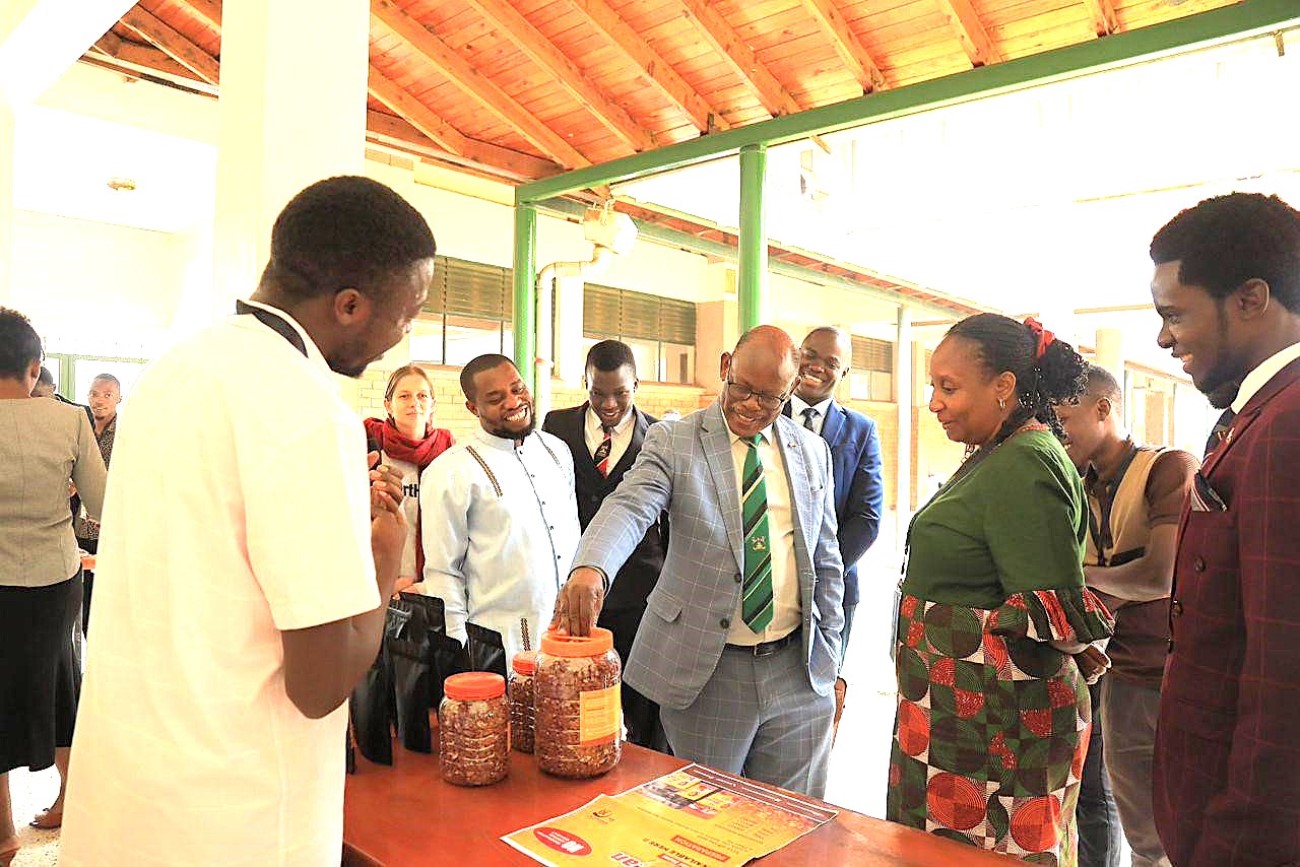
Most notably, the event was honored by the presence of the Vice Chancellor of Makerere University Prof. Barnabas Nawangwe. The Vice Chancellor commended the revitalization efforts, acknowledging the Centre’s immense potential to incubate hundreds of food-based start-ups and create employment opportunities for thousands of graduates. “The Centre is now well-positioned to become a flagship platform for innovation, employment creation, and agro-industrial development in Uganda and beyond. Makerere University remains committed to supporting such initiatives that align with national priorities and global development goals.”
The event featured the unveiling of the operational framework for the revitalized Centre, highlighting its commitment to innovation, entrepreneurship, and practical graduate training. Stakeholders in attendance expressed enthusiasm and pledged support for future collaboration, research, and product development initiatives aligned with national development priorities. The event also provided a platform to deepen partnerships with private sector actors and development organizations, reinforcing confidence in the Centre’s potential to serve as a national model for university-led incubation.
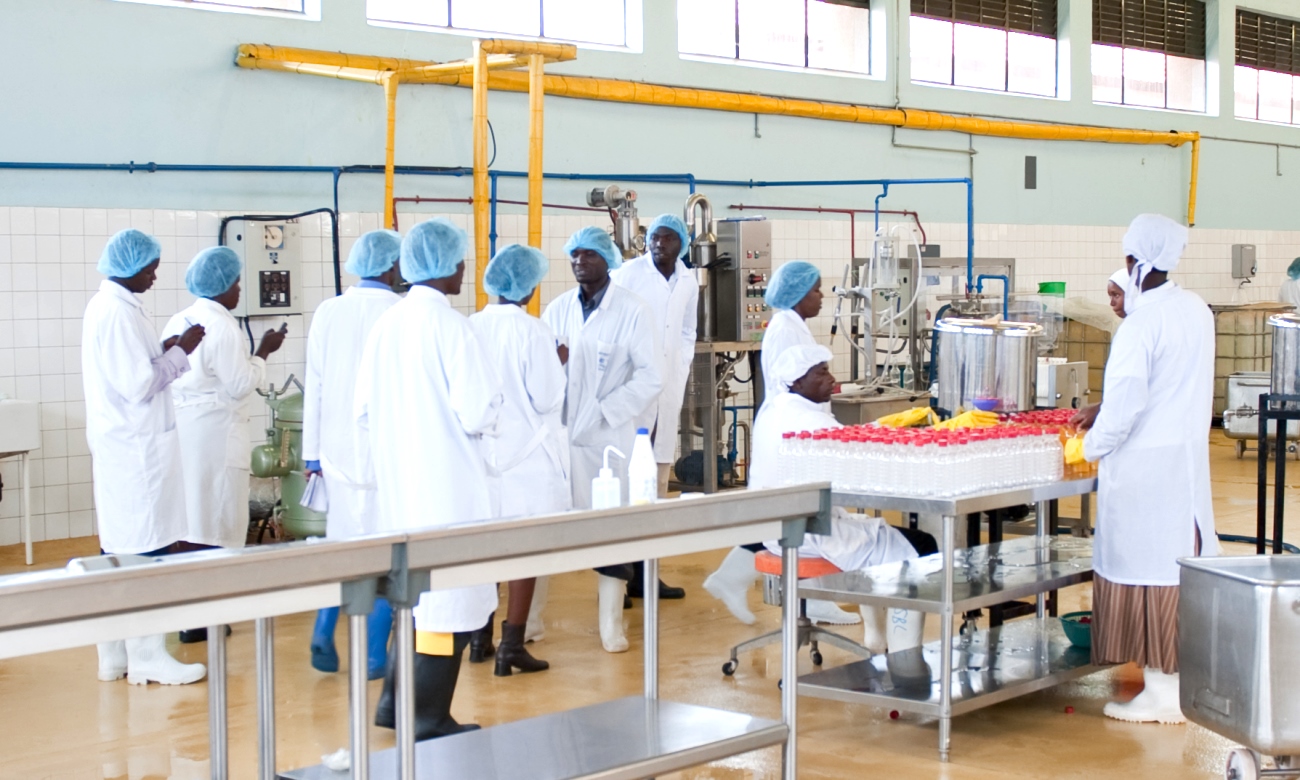
Agriculture & Environment
SophiA Project Upgrades Medical Infrastructure at Buvuma Health Centre IV, Trains Technicians for Maintenance Works
Published
6 days agoon
July 9, 2025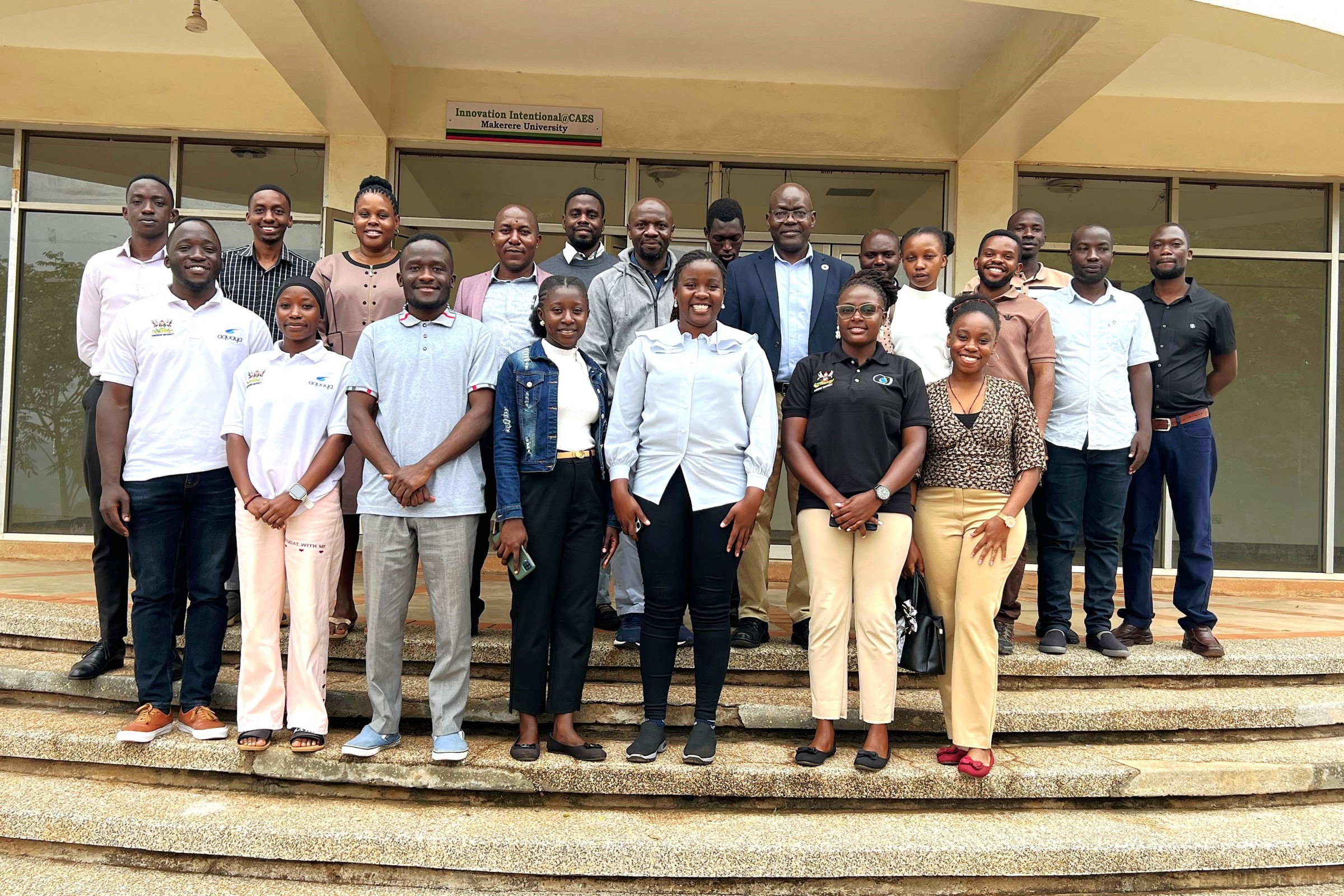
Overview of the Sustainable Off-Grid Solutions for Pharmacies and Hospitals in Africa (SophiA) Project
Despite ongoing urbanization across Africa, the majority of the population still resides in rural and remote areas, where infrastructure development remains limited. These regions face significant challenges such as lack of access to healthcare, education, clean water, and reliable electricity, contributing to higher rates of illness and poverty compared to urban centres. According to reports, Sub-Saharan Africa has approximately 120,000 public health facilities (22,000 hospitals and 98,000 health posts), of which around 26% lack any electricity access, and only 28% have reliable power supply.
Access to good healthcare is critical for sustainable development. However, many rural medical centres operate under harsh conditions – using polluted water, lacking cooling for medicines, and facing poor sanitation – largely due to unreliable electricity and water supply. Although half of the population in Sub-Saharan Africa lacks electricity, the region has abundant renewable energy potential that can be effectively harnessed through off-grid solar photovoltaic (PV) systems.
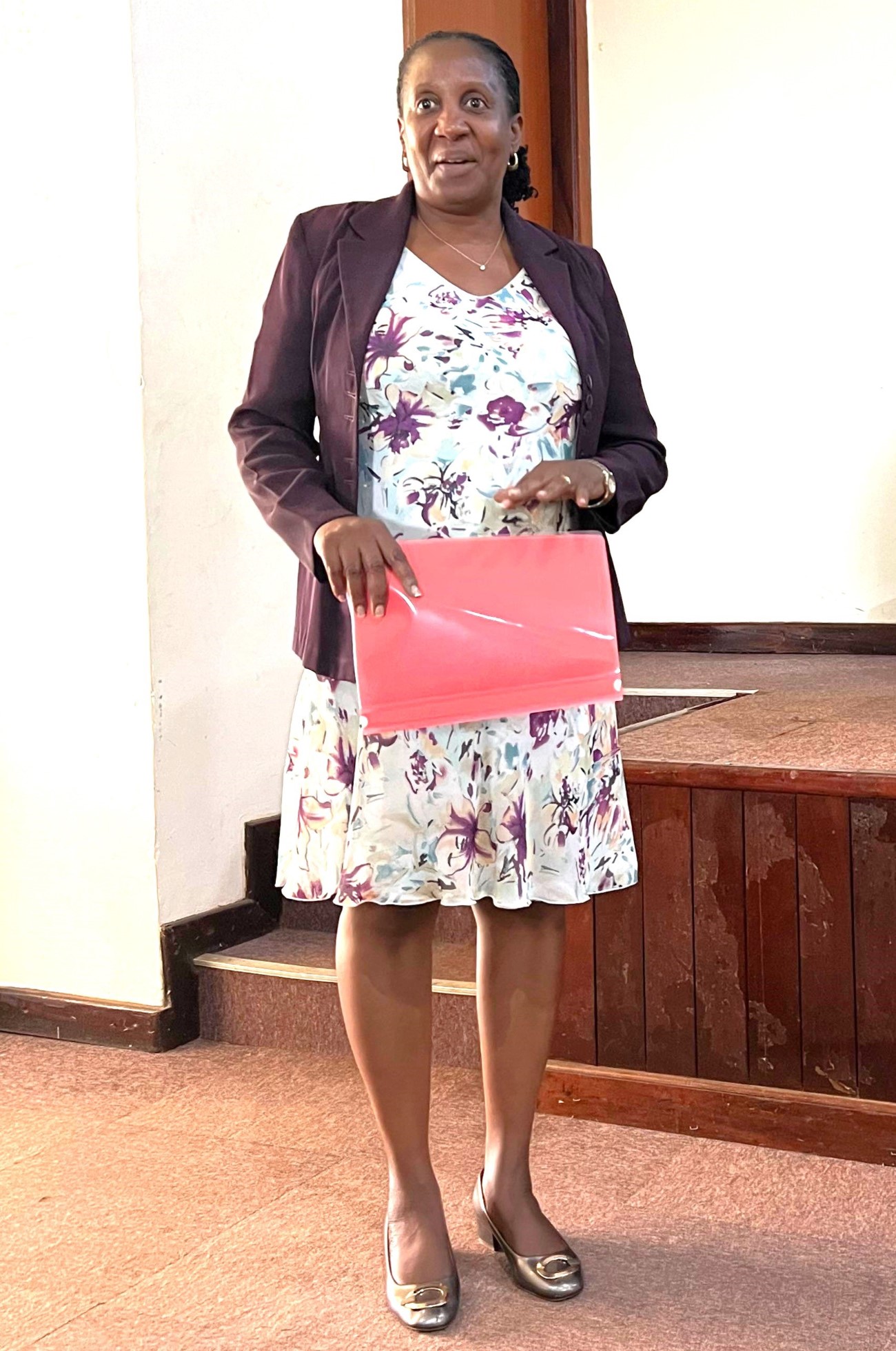
To address the above-mentioned challenges facing the African Continent, Makerere University in partnership with 13 organizations across Europe and Africa developed a project titled, “Sustainable Off-grid solutions for Pharmacies and Hospitals in Africa (SophiA)”. The five-year project that began on 1st October 2021 is funded by the European Union (Project: 101036836 – SophiA – H2020-LC-GD-2-3-2020). At Makerere University, the project is coordinated by Dr. Nicholas Kiggundu, Associate Professor in the Department of Agricultural and Biosystems Engineering, College of Agricultural and Environmental Sciences (CAES).
Piloted in Burkina Faso, Cameroon, Malawi, and Uganda, SophiA aims to provide sustainable off-grid energy solutions to rural and remote health facilities, fostering economic growth and ensuring equitable access to energy and healthcare. Using various technologies, such as photovoltaics, solar thermal, electrical and thermal storage, water treatment and natural refrigerants with low global warming potential, SophiA has developed and manufactured locally innovative, modular, affordable and efficient solar powered systems for providing:
- Safe and clean drinking water, free of bacteria and viruses, and deionised water for medical purposes;
- Hot water and steam production for thermal requirements of the hospitals;
- Cooling of medicines and food at +5°C;
- Low temperature storage of blood plasma and vaccines at -30°C;
- Ultra-low temperature storage of sensitive medication (e.g. some Covid-19 or Ebola vaccines) at -70°C.
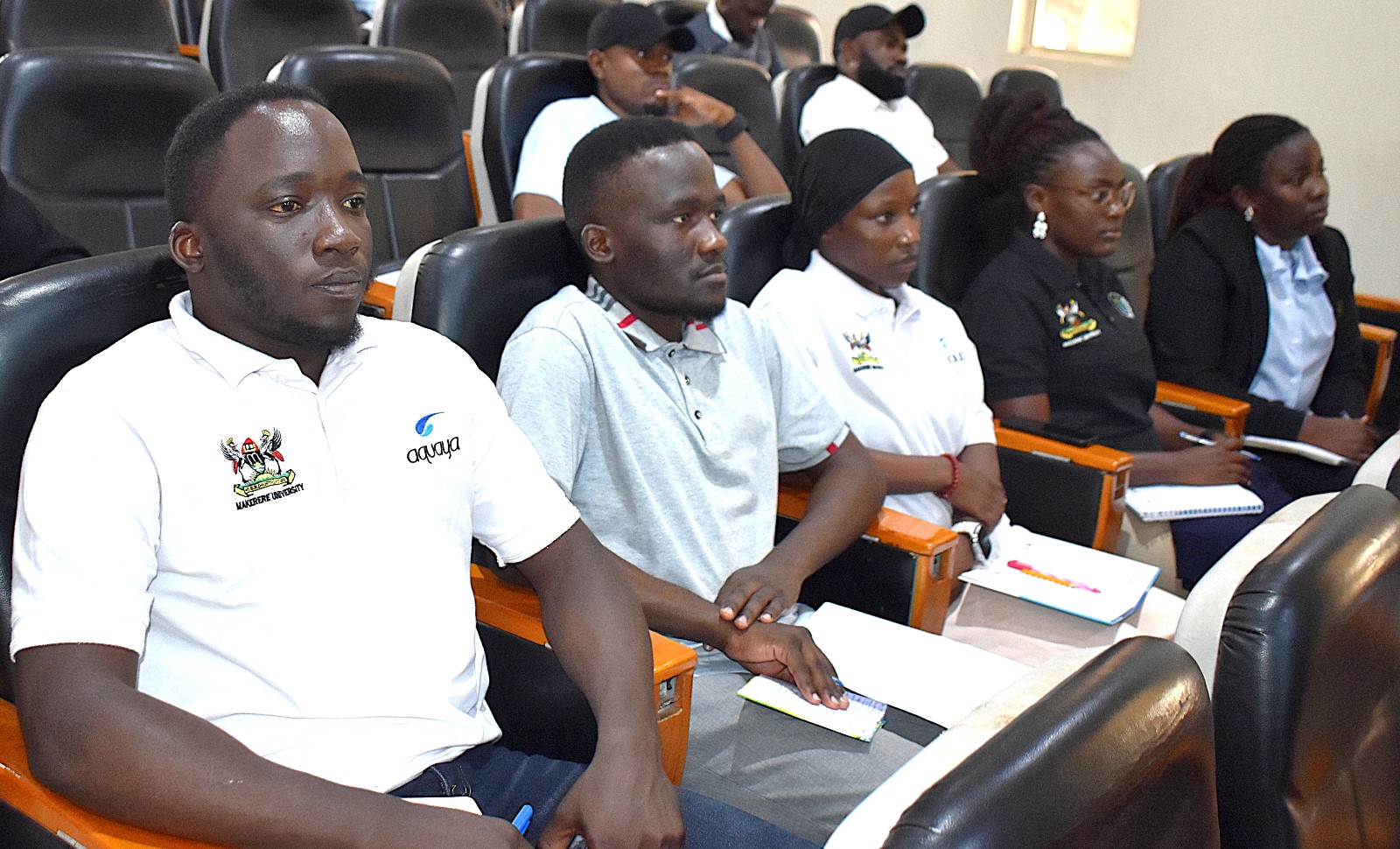
In addition, PV MedPort, a simple and 100% solar-powered solution has been developed and tested as a mobile health care station in small remote areas in 4 different geographical conditions in Africa. The SophiA system has been manufactured in Africa and will provide, for the first-time, innovative solutions based on climate-friendly natural refrigerants to cover cooling demand for three different temperature ranges (-70°C, -30°C and +5°C). The system has been tested and demonstrated at four rural hospitals in remote regions throughout the African continent covering the major geographical regions and different climatic conditions in Burkina Faso, Cameroon, Malawi and Uganda.
SophiA Project initiatives in Uganda
In Uganda, all Health Centre IV hospitals with surgical theatres have been connected to the national grid except Buvuma Health Centre IV, which serves over 120,000 people scattered across 52 islands. Recognizing this gap, the Ministry of Health selected Buvuma Health Centre IV for the SophiA project to demonstrate sustainable off-grid solutions.
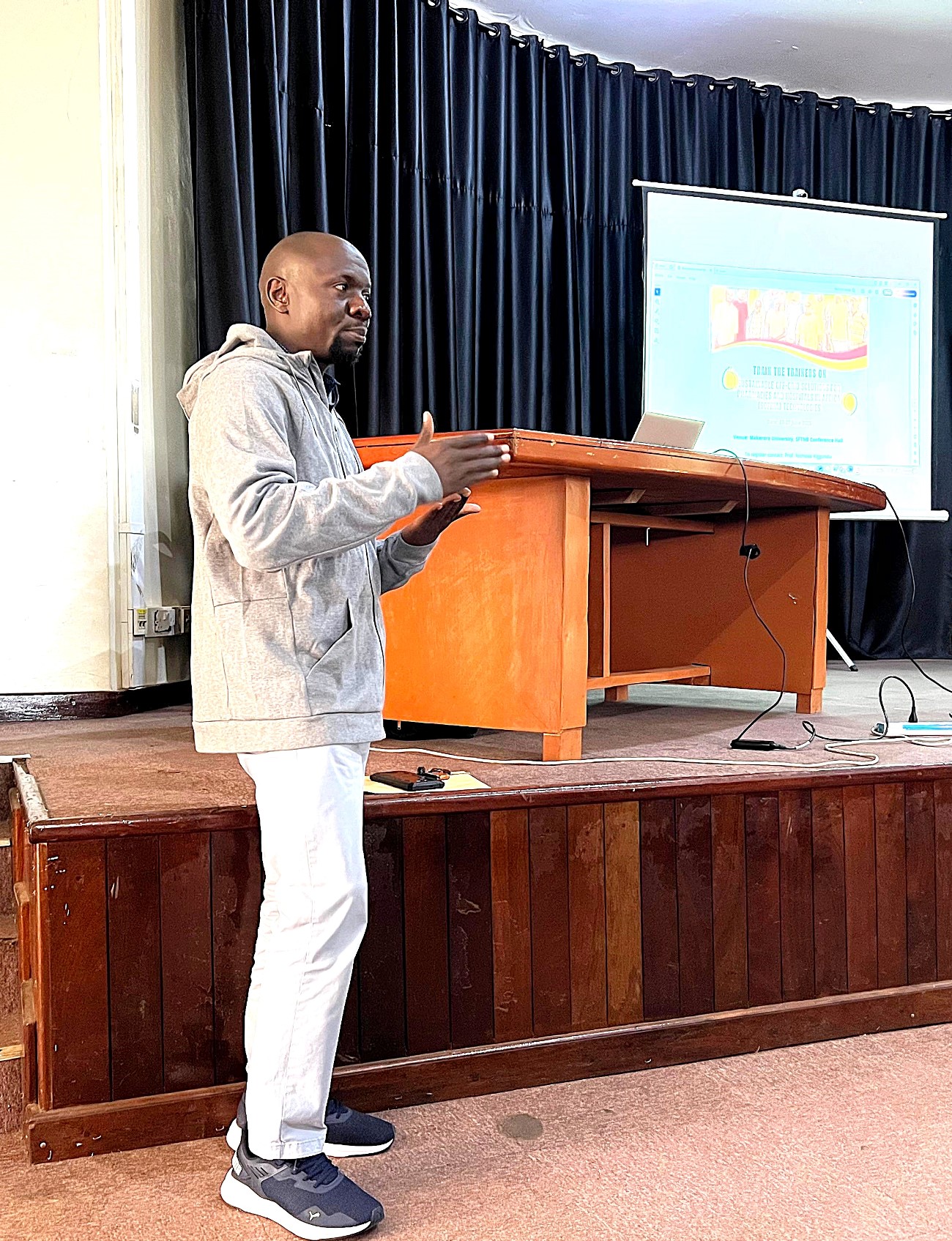
The SophiA System at Buvuma Health Centre IV provides the following services:
- Off-grid electricity supply
- Safe, clean drinking water for patients, staff, and the community
- Hot water and steam systems crucial for maternal care
- Solar-powered cooking and meal preparation
- Cooling systems for surgery and intensive care units
- Refrigeration for medicines at +5°C, blood plasma storage at -30°C, and ultra-low temperature storage (-70°C) for sensitive vaccines such as those for COVID-19 and Ebola
Training of Trainers Workshop
As the SophiA project approaches completion in September 2025, it is vital to establish a skilled pool of technicians capable of handling maintenance and minor repairs of the system components, including solar panels, water treatment units, generators, batteries, and cooking kits.
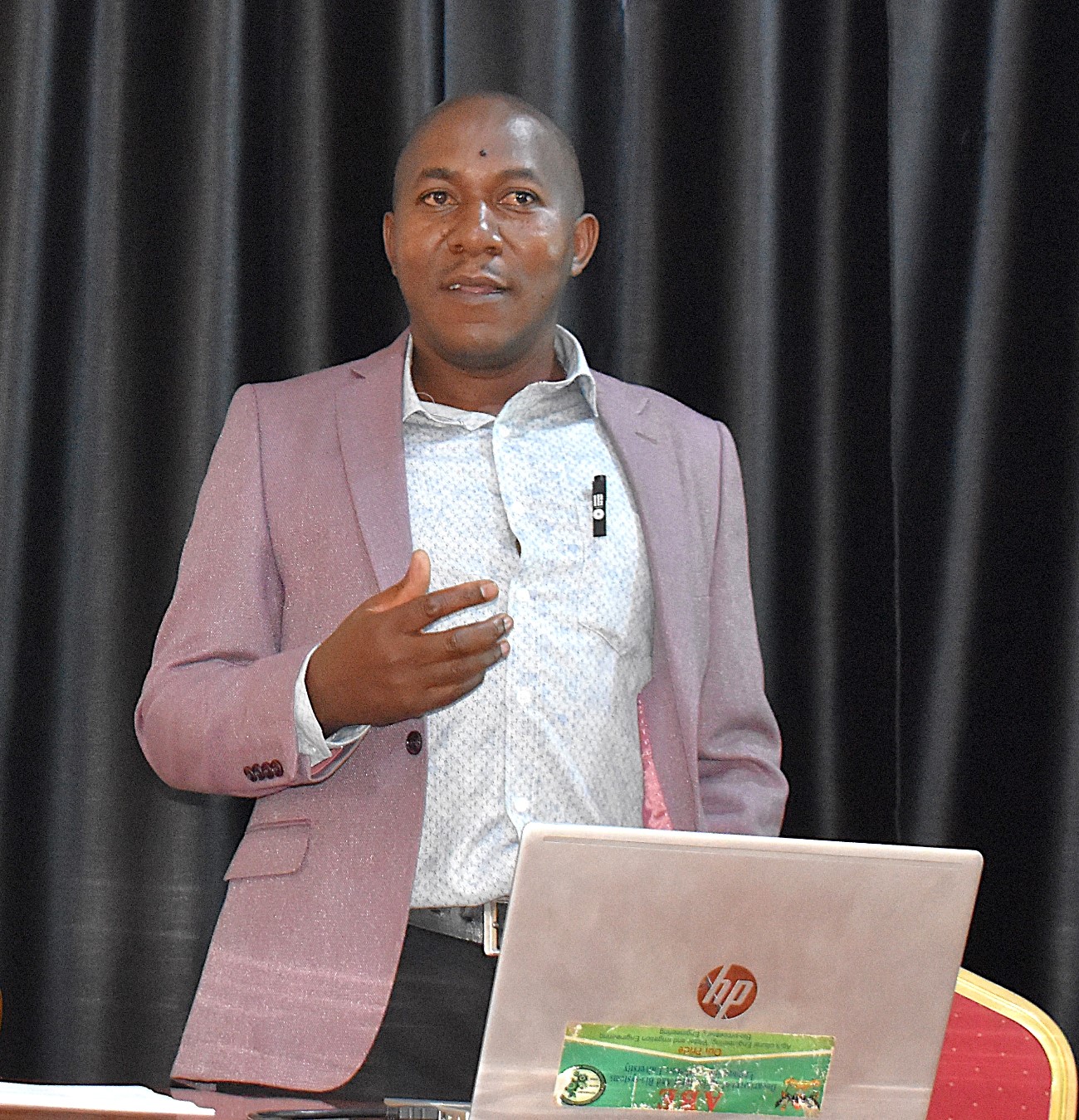
From June 23 to 27, 2025, Makerere University hosted a comprehensive Training of Trainers workshop. The training programme encompassed a diverse range of topics delivered by subject matter experts from institutions, including Makerere University (Department of Agricultural and Biosystems Engineering – CAES, and the College of Engineering, Design, Art and Technology – CEDAT), Hochschule University of Applied Sciences, and Busitema University. Participants were carefully selected from diverse professional backgrounds, including recent engineering graduates from CAES and CEDAT, Makerere University, University technical staff, personnel from Kyambogo University, officials from Buvuma District Works and Health Departments, and electricians from Kampala City. The training sessions were conducted at Makerere University and Buvuma Health Centre IV Hospital.
Training Modules Included:
- Sustainable energy systems and their practical applications
- Energy generation and storage technologies
- Solar water heating: design, operation, maintenance, and performance optimization of solar water heaters, crop dryers, and concentrating solar heaters
- Solar PV technologies in Uganda: cell technology, system design, operations, maintenance, and hands-on practicals for standalone and grid-connected systems
- Public health implications of water quality
- Water treatment and quality management, including protocols, parameters, and case study on the MCDI treatment system
- Water quality testing methodologies
- Introduction to sustainable refrigeration and cooling technologies
- Environmental impact and safety considerations for refrigerants
- Refrigeration cycles and component overview
- Life cycle assessment of SophiA technologies
- Thermal energy storage within the SophiA system
- Steam as a productive energy source
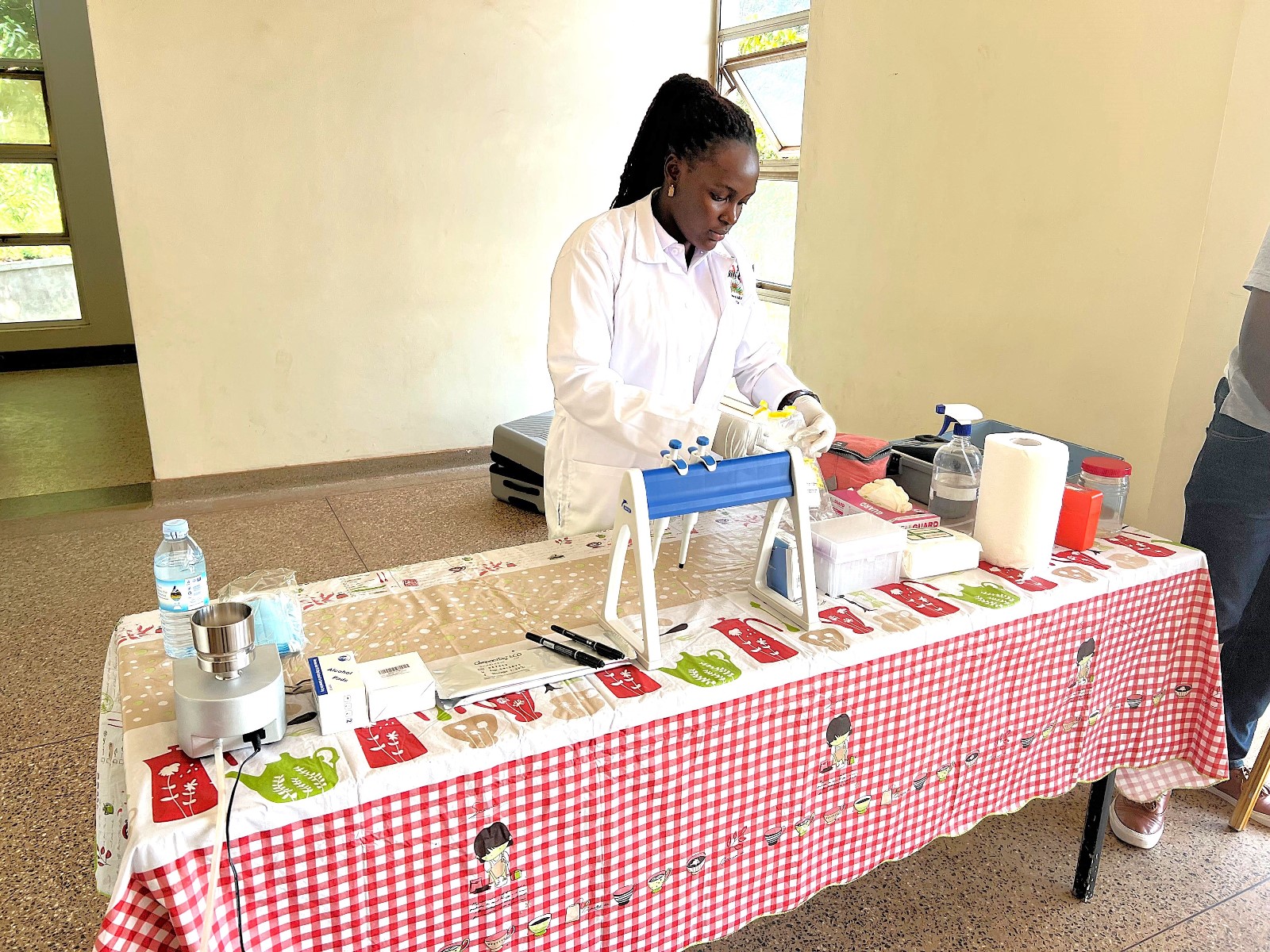
The Training Sessions
Day One: Introduction to foundational concepts in solar energy technologies
The first day of the SophiA Train the Trainers Workshop focused on building foundational knowledge in sustainable and solar energy systems. Led by Dr. Peter Tumutegyereize and Dr. Francis Mujjuni, participants explored a range of technologies and applications critical to clean energy deployment.
Key topics included:
Sustainable Energy Systems: Introduction to renewable energy systems including bioenergy, hydro, wind, geothermal, hydrogen fuel cells, and battery storage.
Solar Radiation & Geometry: Understanding solar constants, irradiance, and the impact of atmospheric conditions on solar performance.
Solar Thermal Technologies: Detailed look at solar water heating systems (FPCs and ETCs), maintenance, sizing, and solar dryers for agricultural and industrial use.
Photovoltaic (PV) Systems: Working principles, types of PV cells, performance factors, and diagnostics. Practical testing techniques and metrics like Voc, Isc, MPP, and PR were discussed.
Simulation & Application: Olivia Nakiwanuka demonstrated a PVsyst-based simulation of a 2.55 kWp standalone system for a conference hall, showing a high solar fraction (97.88%) and low LCOE (USD 0.03/kWh).
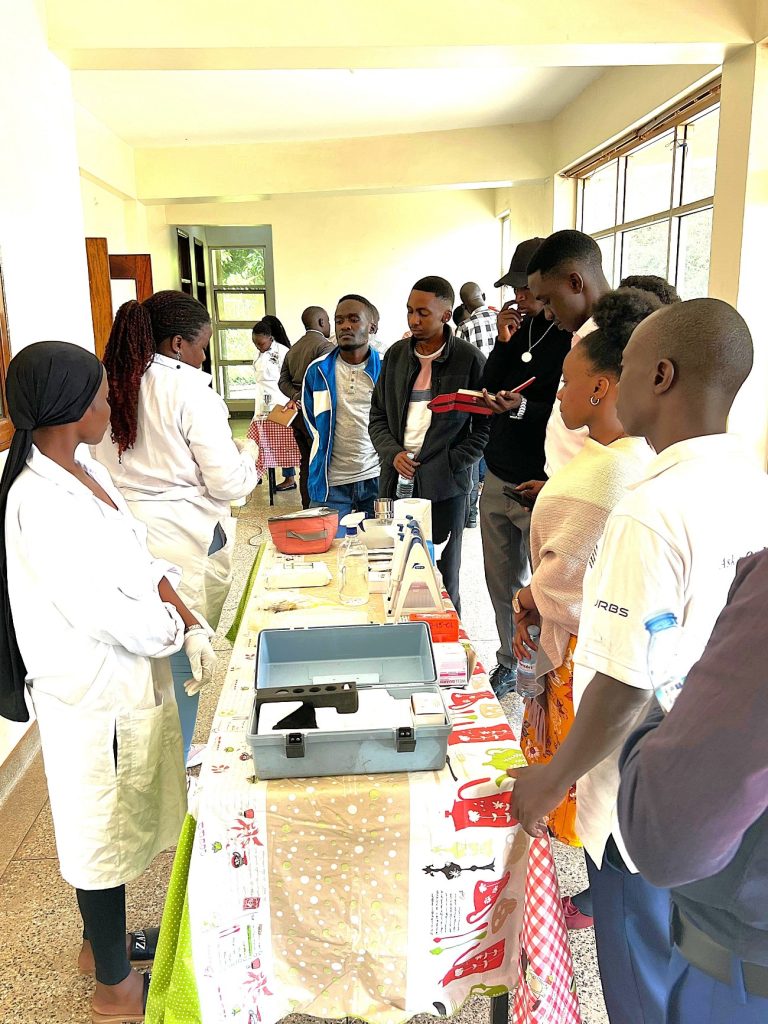
The sessions emphasized practical skills, performance analysis, and real-world application, equipping participants to train others and support solar adoption, especially in rural and off-grid settings.
Day Two: Water Treatment Technologies
The second day focused on water treatment technologies relevant to low-resource healthcare settings. Facilitated by Sneha De and Mr. Duc Dinh Ngoc from Hochschule Karlsruhe University, sessions covered technical, environmental, and operational challenges, with contributions from Dr. Joshua Wanyama on water quality management and Dr. Prossie Nakawuka on practical water testing.
Key challenges addressed included unreliable water supply and contamination in healthcare facilities, emphasizing the need for decentralized water treatment, especially in rural areas.
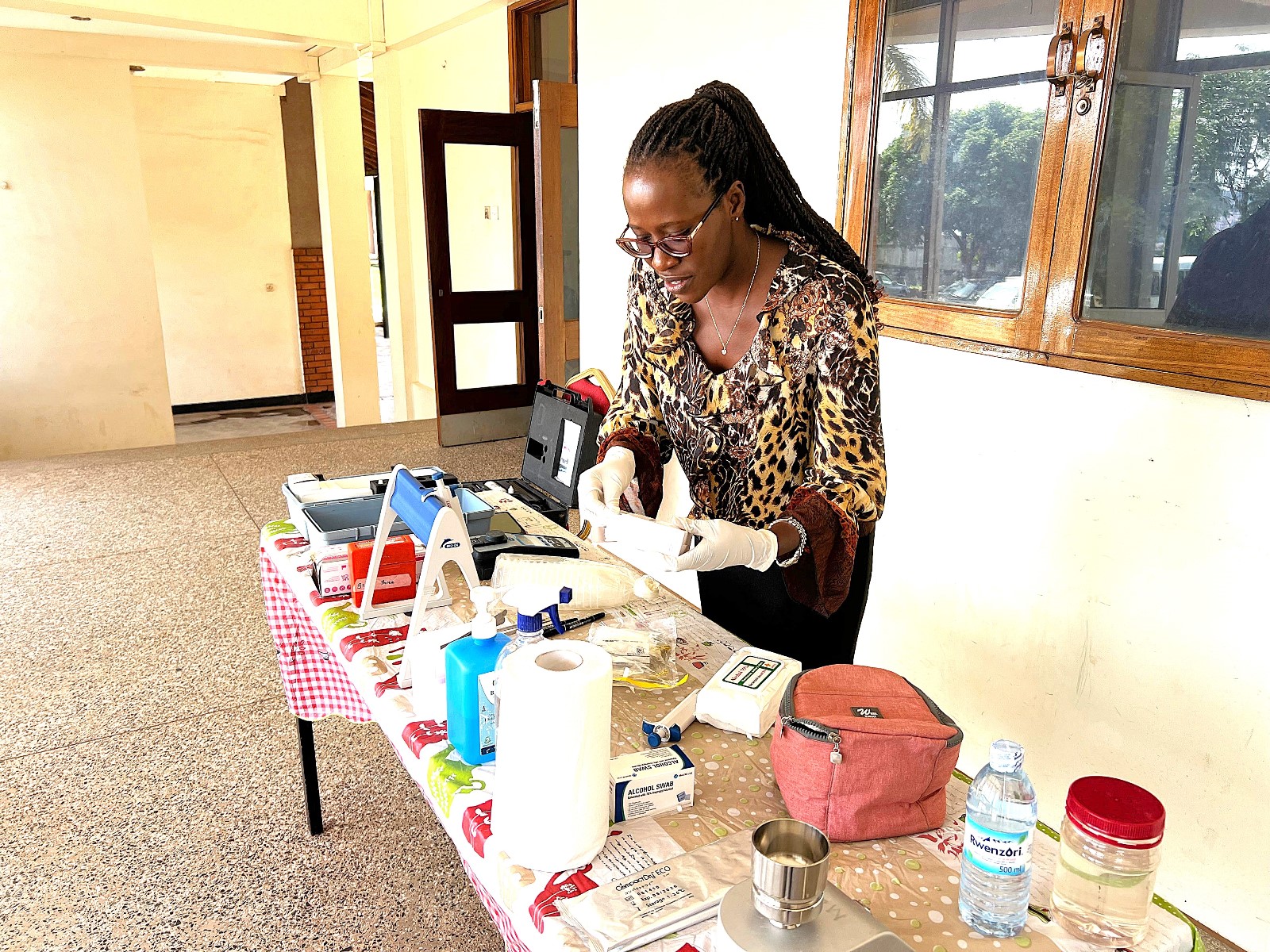
Sneha De reviewed biological and physical/chemical water treatment methods, highlighting technologies such as activated sludge, filtration, membrane bioreactors, and advanced disinfection techniques. The SophiA modular water treatment system, integrating ultrafiltration and membrane capacitive deionisation (MCDI), was introduced as a scalable solution for producing safe drinking and deionised water for medical use.
Mr. Duc Dinh Ngoc trained participants on the MCDI technology, an energy-efficient method for salt and fluoride removal suitable for low-salinity water.
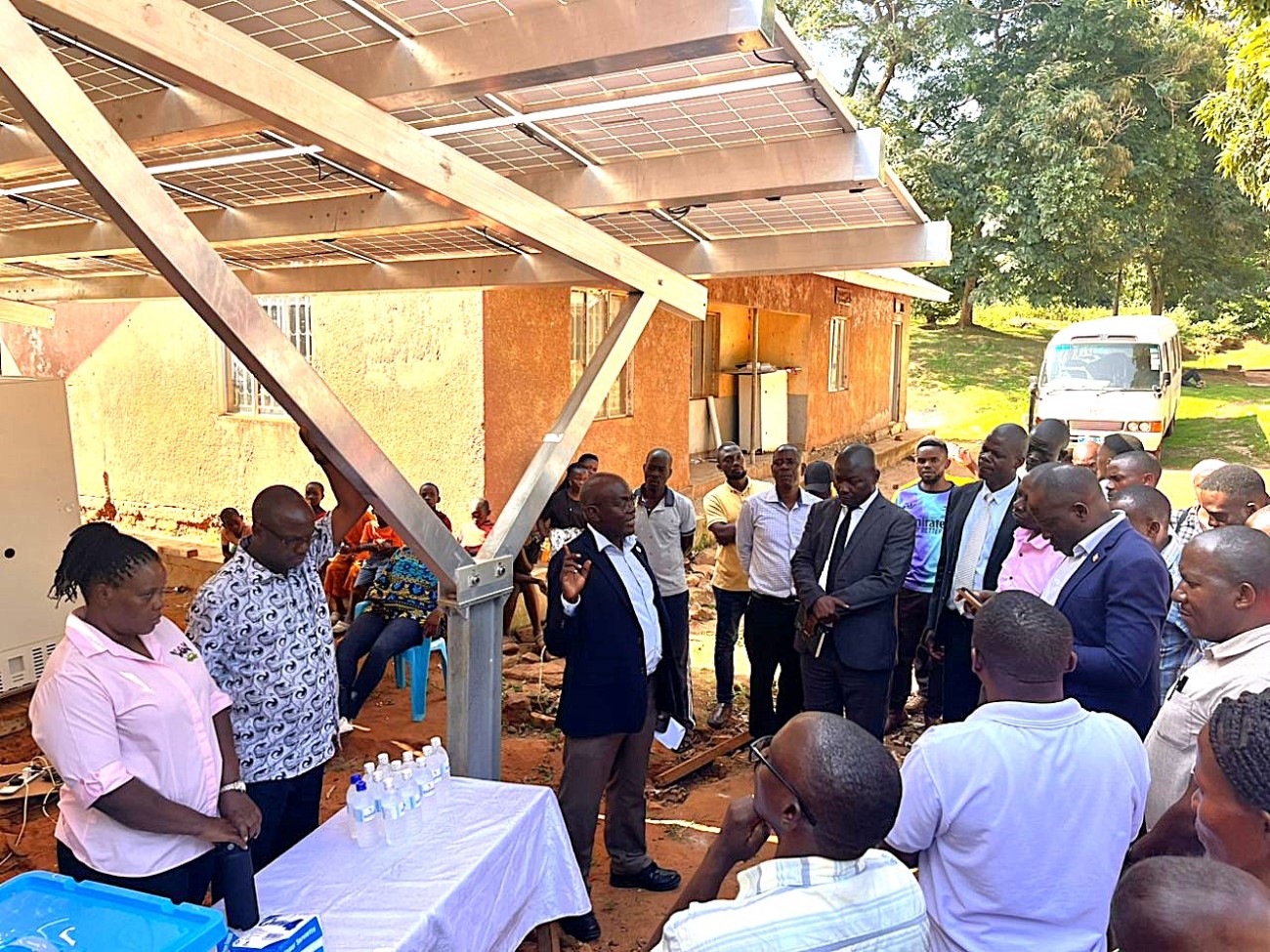
Dr. Joshua Wanyama discussed the water quality management protocols, outlining key physical, chemical, and biological water parameters and monitoring strategies, including modern IoT-based tools, to ensure water safety and public health.
The day concluded with a hands-on lab session by Dr. Prossie Nakawuka, where participants practiced water quality testing using turbidimeters, incubators, and filtration techniques.
Overall, Day Two combined theoretical insights, technology demonstrations, and practical skills, preparing participants to implement sustainable water treatment and quality management systems in healthcare environments.
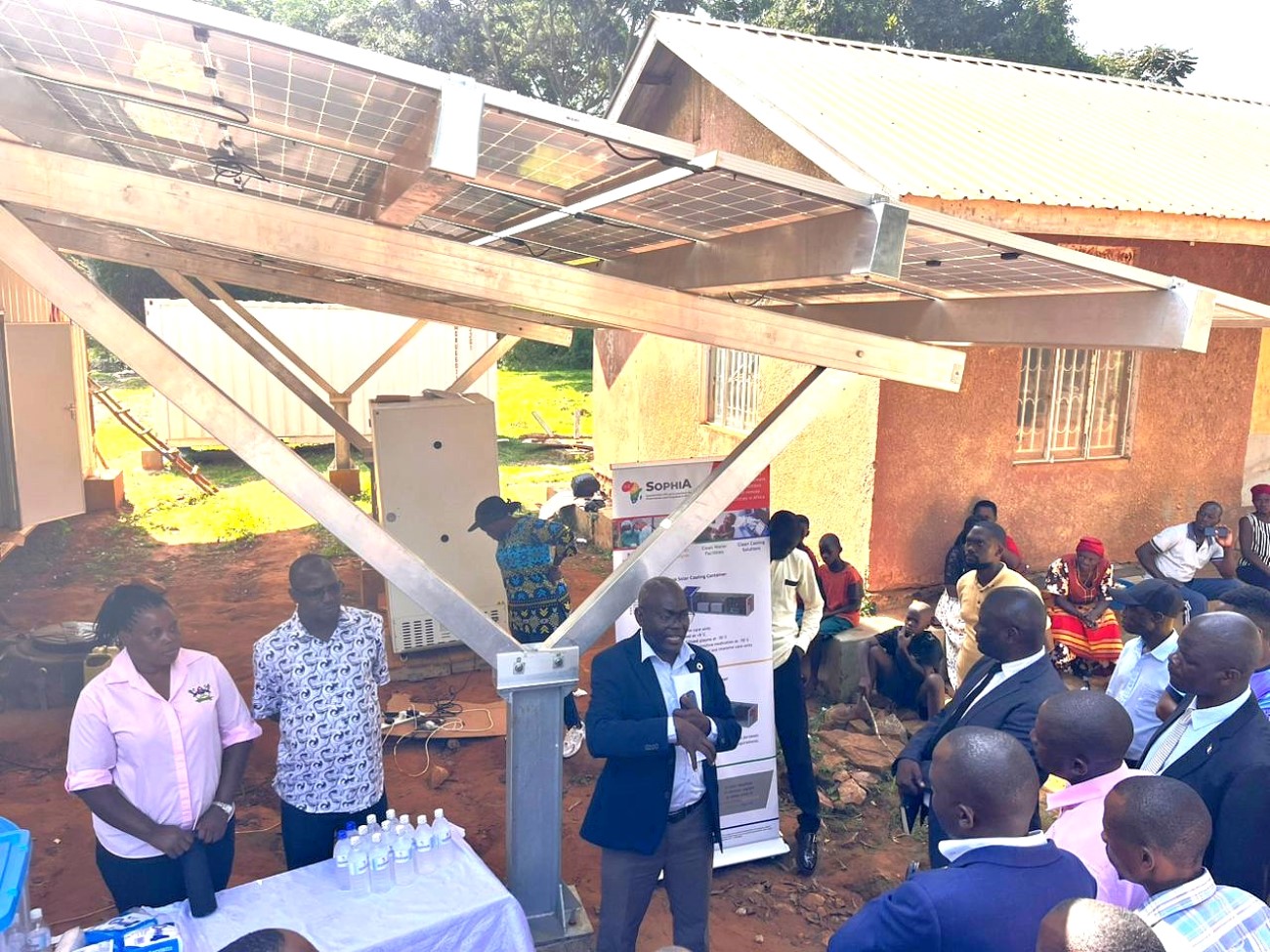
Day Three: Refrigeration and Cold Storage
The third day of the SophiA workshop focused on sustainable refrigeration and cold storage technologies tailored for healthcare in Sub-Saharan Africa. Experts discussed energy-efficient, climate-friendly cooling solutions vital for vaccine storage, medicines, and diagnostics, especially in off-grid and rural settings.
Key highlights included the introduction of solar-powered and biomass-based refrigeration systems, thermal energy storage methods, and the use of natural refrigerants like propane, ammonia, and CO₂ as environmentally safer alternatives. Presentations emphasized the critical role of refrigeration in healthcare and the urgent need to replace harmful chemicals with sustainable technologies.
Sessions covered real-world applications such as the SophiA cooling containers in Burkina Faso, safety protocols for flammable refrigerants, and the environmental and economic benefits of solar refrigeration systems assessed through life cycle analysis.
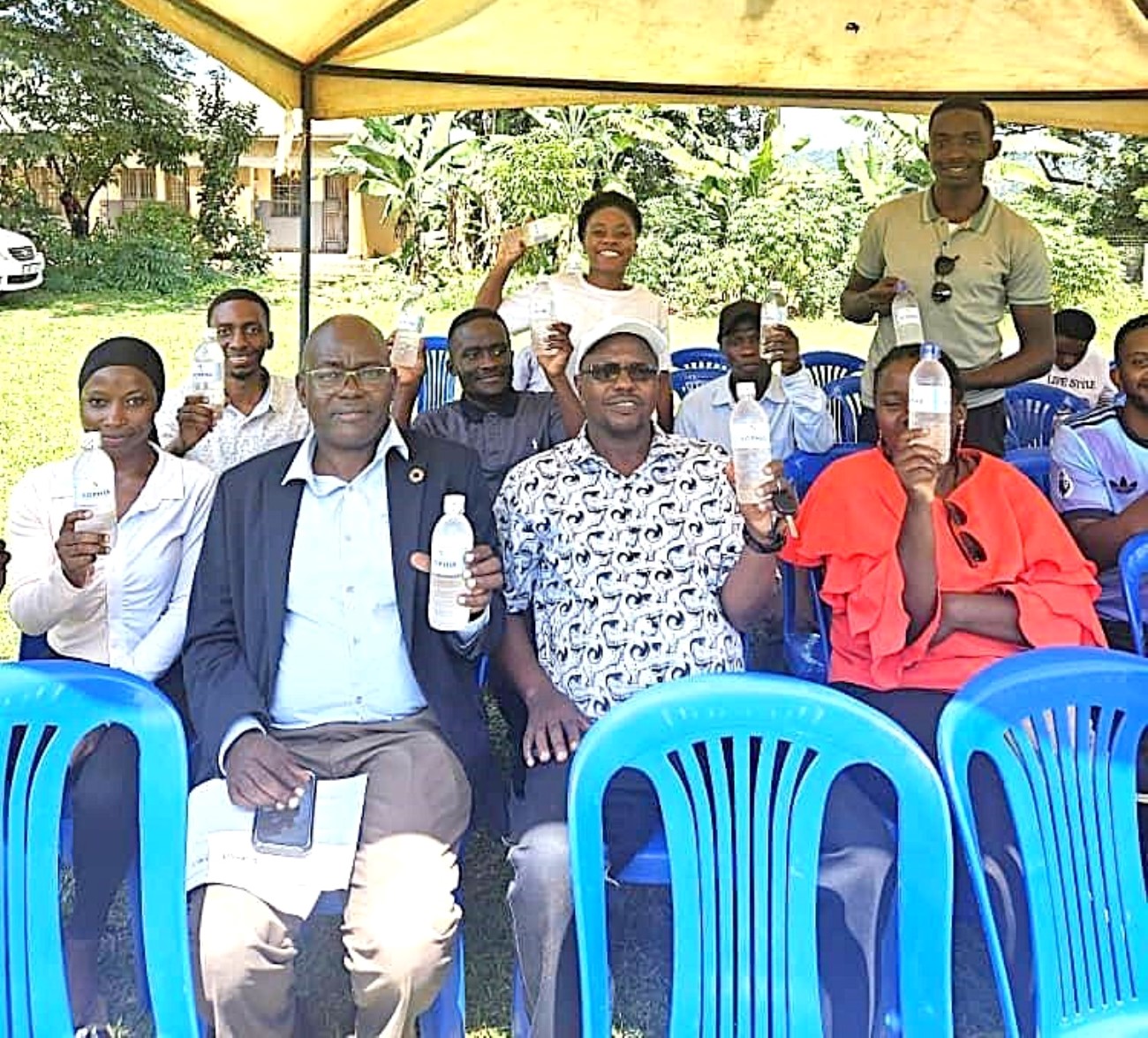
The day ended with an interactive quiz and discussion, reinforcing learning and encouraging participants to apply sustainable cooling practices in their communities.
Day Four: World Refrigeration Day & Field Visit to Buvuma Island
The fourth day of the SophiA Train the Trainers workshop was dedicated to the celebration of the World Refrigeration Day and a field excursion to Buvuma Island, providing participants with a unique opportunity to witness the SophiA system in action. The day was coordinated by Dr. Sarah Bimbona and Dr. Nicholas Kiggundu, who led the delegation to Buvuma Health Centre IV, the pilot site for the SophiA installation in Uganda.
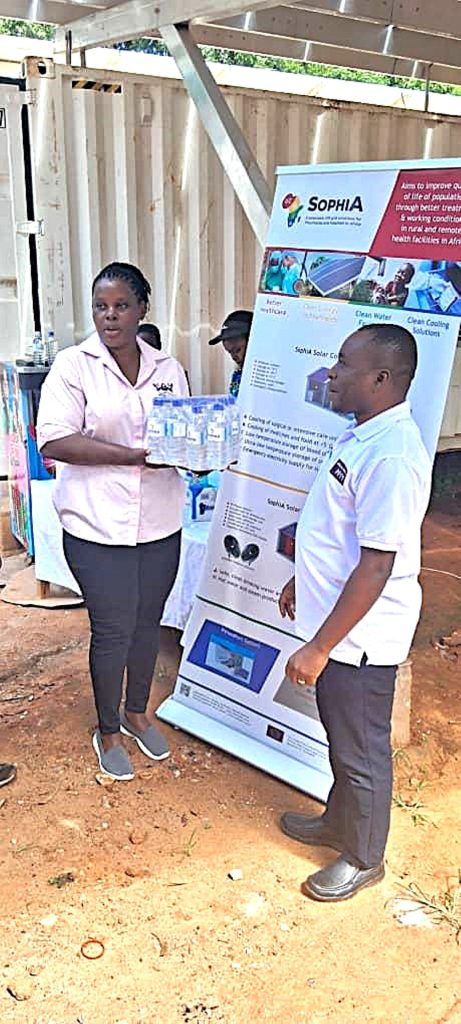
The visit served as both a practical extension of the previous day’s technical sessions and a community engagement event. Participants were able to observe the installed SophiA system, which integrates solar-powered refrigeration, water treatment and steam generation technologies designed for off-grid healthcare settings. During the visit, Dr. Kiggundu provided a detailed briefing to local stakeholders, including representatives from the Buvuma District Local Government, delegates from the Buganda Kingdom, and members of the local community. He explained how the SophiA system will enhance healthcare delivery on the island through reliable cold storage for vaccines and medicines, access to clean drinking water, and steam generated for cooking and use in the maternity wards.
As part of the long-term sustainability plan for the SophiA system, the launch of SophiA Water was announced, an entrepreneurial initiative designed to generate revenue locally for the operation and maintenance of the system.
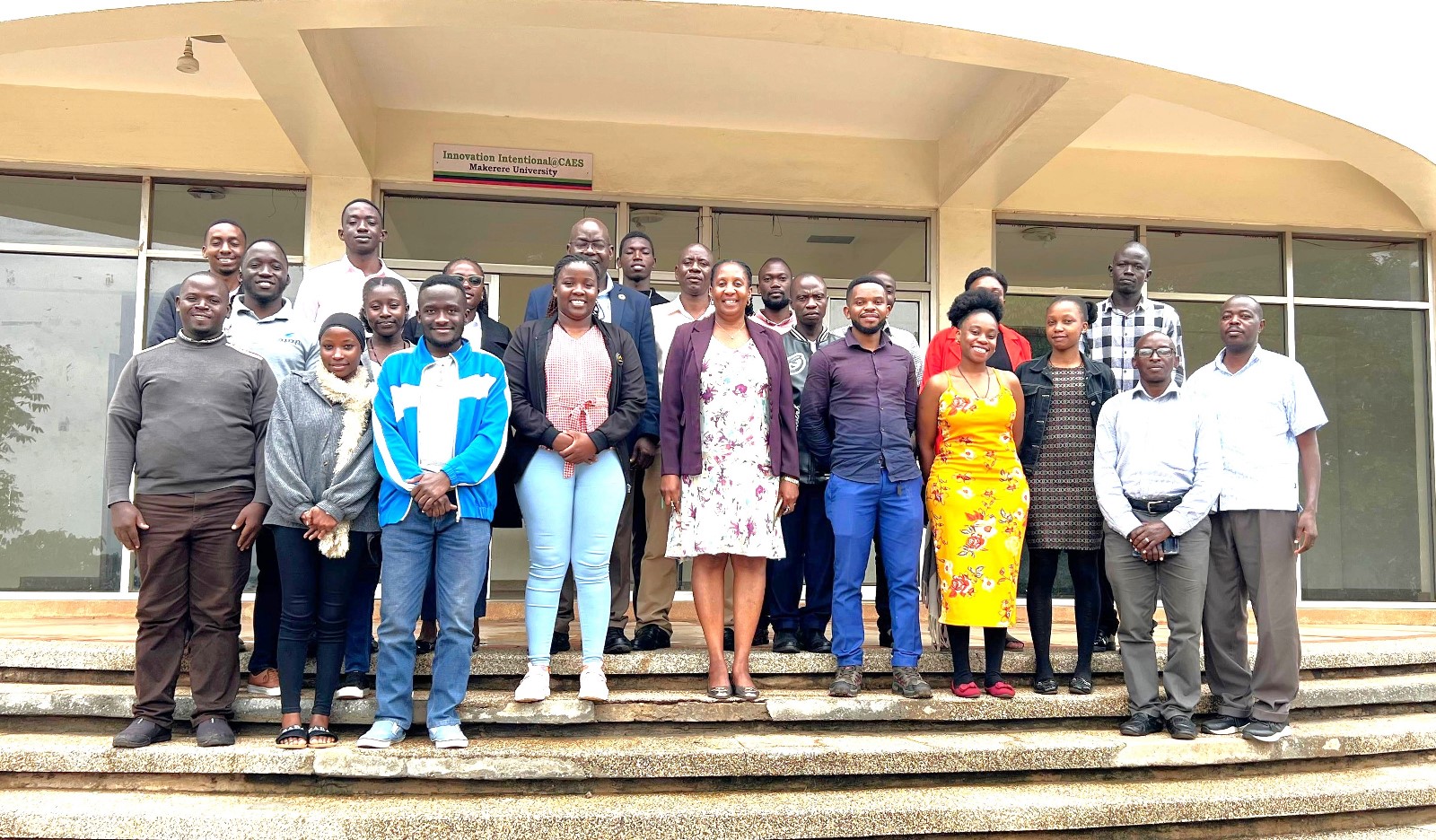
The field trip ended with a certificate awarding ceremony in appreciation of the participants’ dedication and active engagement throughout the training programme.
Agriculture & Environment
APRC Trains Graduate Students & Stakeholders in the Use of the African Agriculture Adaptation Atlas
Published
2 weeks agoon
July 3, 2025
The Agricultural Policy Research Centre (APRC), housed within the College of Agricultural and Environmental Sciences (CAES) at Makerere University, continues to play a pivotal role in shaping Uganda’s agricultural future through evidence-based policymaking. With a mission to ensure that agricultural policies are grounded in empirical research and data, APRC is actively investing in capacity-building initiatives that empower researchers, policymakers, and development actors.
In a significant stride toward building climate resilience in African agriculture, APRC recently organized a two-day intensive training workshop focused on the African Agriculture Adaptation Atlas (AAAA) – a state-of-the-art, web-based decision-support platform that facilitates the integration of climate data into agricultural planning and policy.

The workshop, held on Wednesday 25th and Thursday 26th June 2025 at the School of Agricultural Sciences, Makerere University, targeted two key groups: graduate students on the first day, and university faculty, government officials, and development practitioners on the second. This structure ensured tailored learning experiences for both emerging and seasoned professionals, helping to bridge the gap between academic research and real-world policy implementation.
The African Agriculture Adaptation Atlas (AAAA) is designed to provide dynamic, data-rich visualizations that support informed decision-making in agriculture and food systems across the continent. Through interactive maps and analytical tools, users can explore projected climate impacts, evaluate risks, and identify localized, climate-smart adaptation strategies.

Throughout the sessions, participants received hands-on training in a broad range of AAAA functionalities, including:
- Leveraging the Atlas for research and policy communication: Enhancing the ability of scientists and policy actors to translate complex climate data into actionable insights;
- Assessing projected climate impacts and associated agricultural risks: Essential for forward-looking planning and risk mitigation;
- Identifying climate-smart investment options, with a particular focus on the livestock sector, which is especially vulnerable to climate shocks;
- Analysing gendered vulnerabilities: Examining how climate change disproportionately affects women in agricultural communities;
- Understanding the implications of heat stress on agricultural productivity: Supporting targeted interventions to protect producers and their livelihoods;
- Estimating the economic returns of adaptation strategies: Aiding in prioritizing investments and allocating limited resources effectively.

Prof. Bernard Bashaasha, the APRC Coordinator, emphasized the importance of the training in advancing Africa’s adaptation agenda. “As climate change continues to threaten food security and disrupt livelihoods across the continent, tools like the AAAA, and the skills to use them effectively are essential. They empower decision-makers to craft policies that are adaptive, inclusive, and rooted in science,” he noted.
The workshop was coordinated by Dr. Florence Rwiza, Lecturer in the Department of Agribusiness and Natural Resource Economics at CAES.
More photos from the Training






Trending
-

 Education2 weeks ago
Education2 weeks agoAdmission List to Bachelor of Education External (BED) 2025/26 -Private Sponsorship
-

 General1 week ago
General1 week agoRe-advert: Admission to Undergraduate Programmes 2025/2026
-
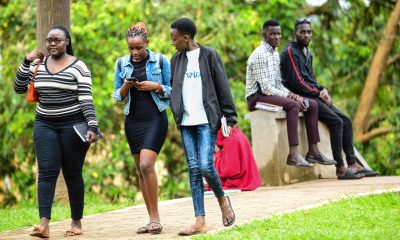
 General2 weeks ago
General2 weeks agoAdmission Lists -Disability and District Quota Schemes 2025/26
-
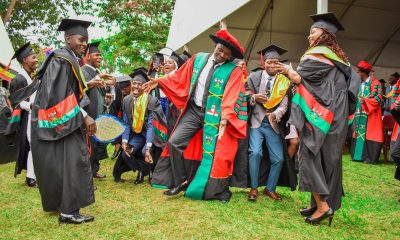
 General2 weeks ago
General2 weeks agoDiploma/Degree Holders Scheme – Self Sponsorship Admission Lists 2025/26
-

 General6 days ago
General6 days agoRe-Advert for Applications for Diploma and Certificate Training
